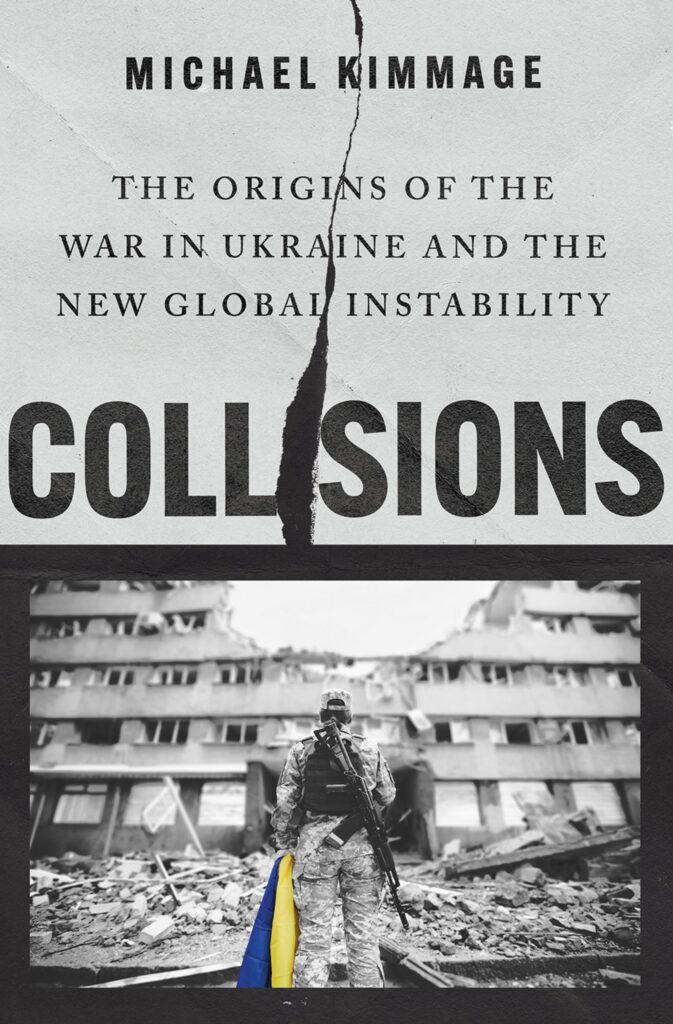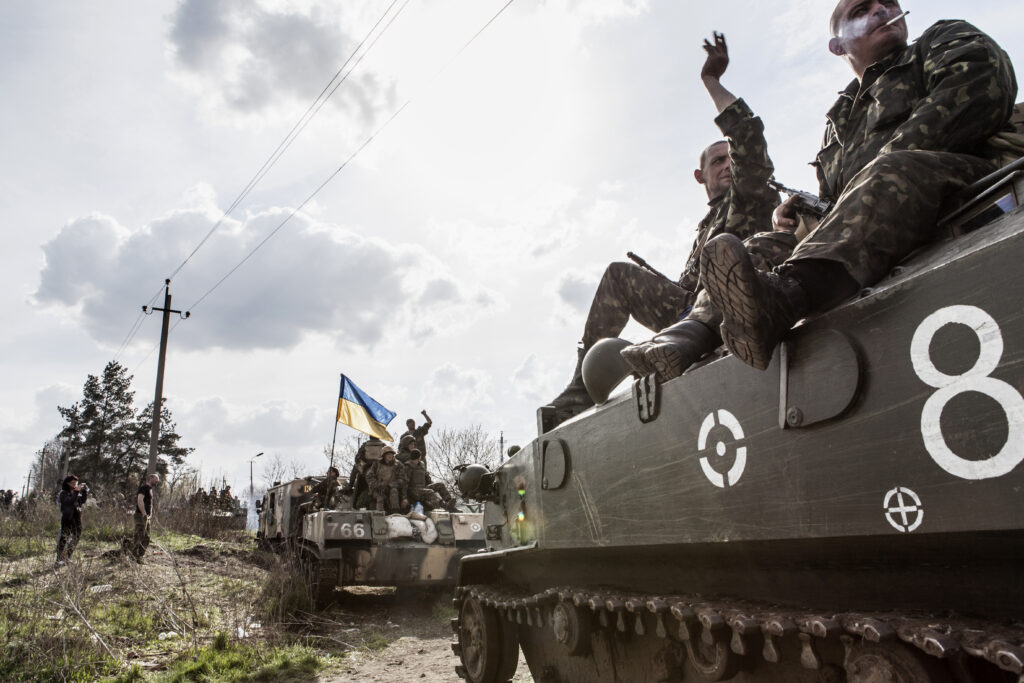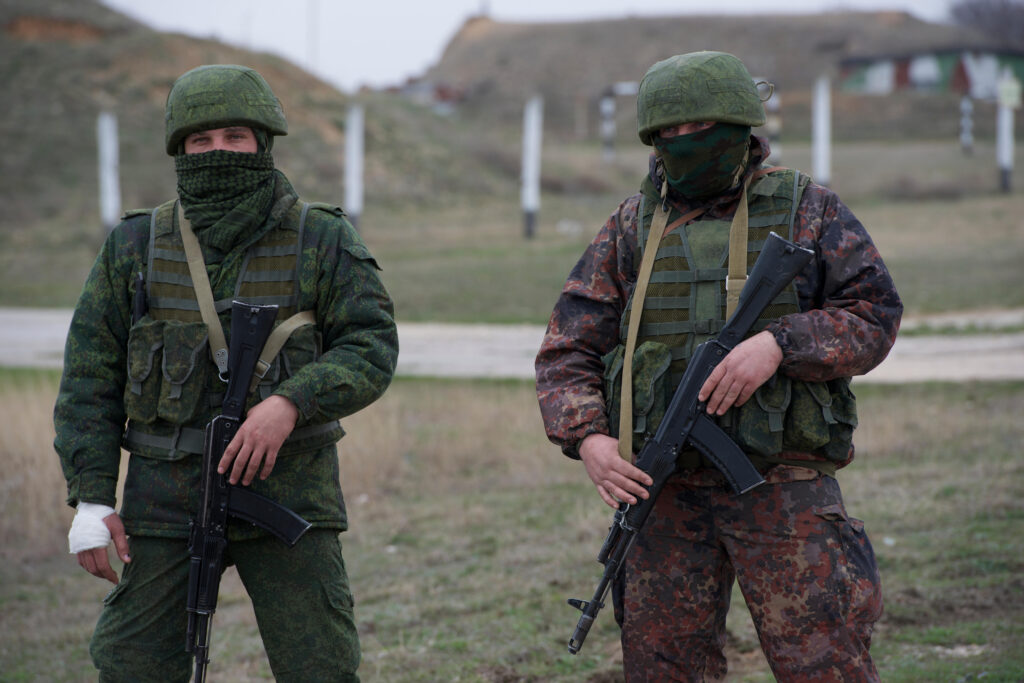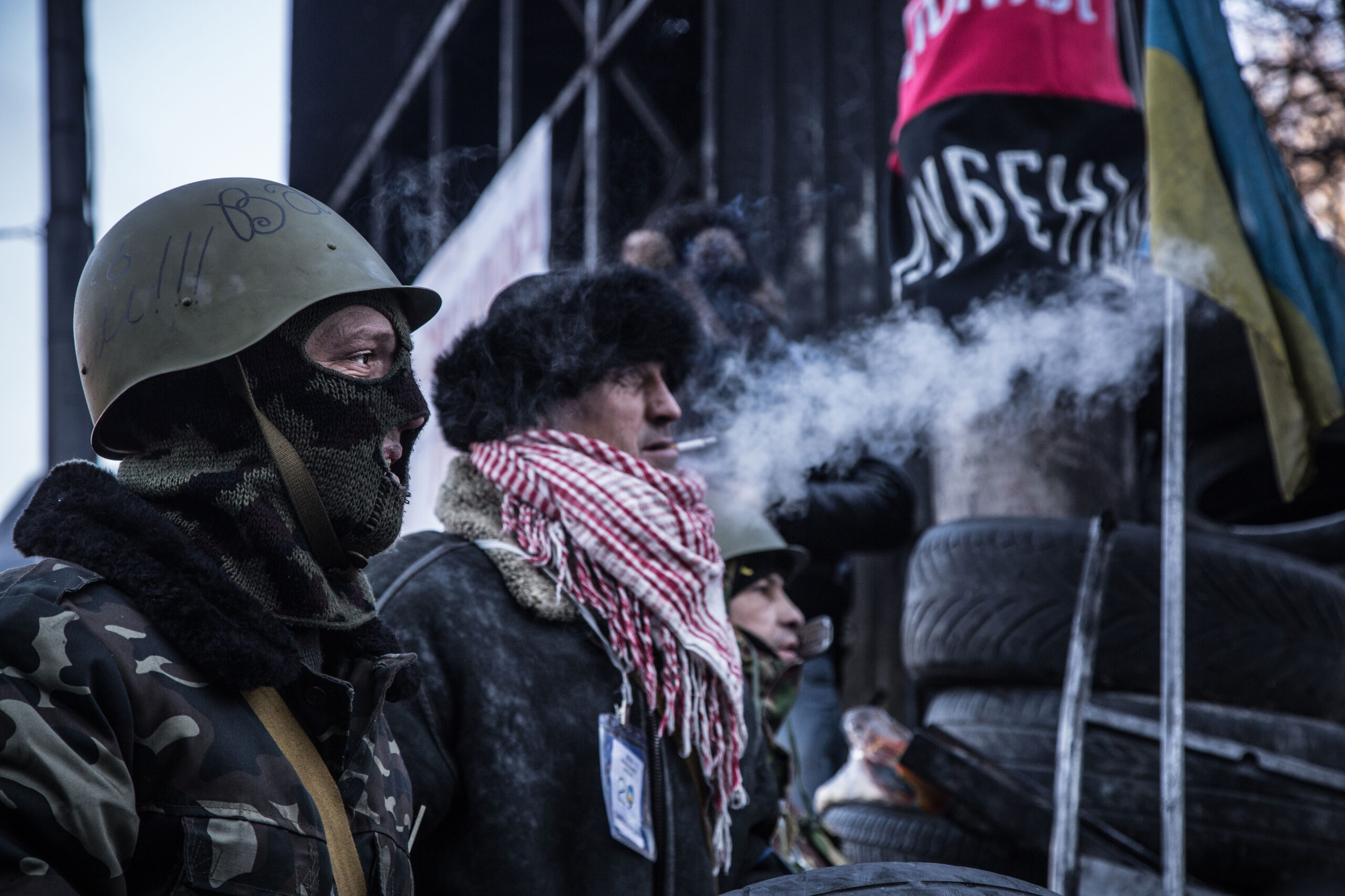The leading academic in US-Russian relations and Cold War history reflects on the tenth anniversary of the annexation of Crimea, and discusses his latest book Collisions, which traces the origins of the Russo-Ukrainian conflict.
Image credit: Vianney Le Caer/Pacific Press/LightRocket via Getty Images

Michael Kimmage is currently a professor in history at The Catholic University of America and a research fellow with the German Marshall Fund of the United States. Kimmage has also worked at the coalface of US foreign policy, serving on the Secretary’s Policy Planning Staff at the U.S. Department of State, where he held the Russia/Ukraine portfolio.
His latest book, Collisions: The Origins of the War in Ukraine and the New Global Instability, traces the origins of the war in Ukraine from the Cold War to the 2014 annexation of Crimea. Drawing upon his years of experience in academia and government, Kimmage delivers a unique account on how the world has reached a level of global instability unseen since 1945.
In commemoration of the tenth anniversary of Putin’s annexation of Crimea, History of War spoke with Kimmage about the military situation in the peninsula, before and after the annexation, the geopolitical ramifications and what the West can learn from re-examining the annexation
For more information visit Oup.com/academic
Throughout your book Collisions, you compare the Russo-Ukraine war to the Peloponnesian War. Can you explain this comparison and where the annexation fits into it?
There are a couple of things to say about Thucydides and the Peloponnesian War in terms of Collisions. One is purely aspirational on my part and this is that what Thucydides did in that book was not editorialise. He didn’t moralise about the war . He tried in his terms to understand it. I attempted to imitate that and there’s not a lot of moral judgement in the book. It’s an effort to trace the story
The second part of that book’s great gift to those of us trying to understand the origins of war is Thucydides’ twofold explanation of why the war broke out. One is that there was competition between Athens and Sparta over alliance structures, and there was a particular crisis zone that pulled Athens and Sparta into a larger conflict. That does seem an operative analogy here because a lot of other countries have gotten pulled into this war in the sense that the UK, the US, Germany, France, are all heavily supporting Ukraine. Meanwhile, Russia has its kind of global structure that it’s drawing on to fight the war.

(Photo by Sandro Maddalena/NurPhoto)
I think these ideas can help us to understand that dynamic and that’s what Thucydides’ book has been doing for hundreds and hundreds of years very finely. The book is a tragedy and Thucydides doesn’t moralise, but he’s just horrified by the turn of events. And I feel quite similar when I look at what’s happened. I don’t know if it’s because this was perhaps an avoidable crisis, at least in 2013 and 2014. But also just the toll that it’s taking is horrific to behold and that to me conjures up this ancient book.
Describe the development of Russia’s “hybrid war” during the annexation?
In some ways, hybrid war is just war in a classically construed sense and we could take this conversation back to Thucydides. It’s not the first war by any means, with propaganda, mythmaking, deception and efforts to confuse your opponent being integral to the war effort. I think that if there is a coherence to the notion of hybrid war, what it means is that you’re staying beneath a certain threshold.
With the techniques that he chose and the veil that he put over his military efforts in 2014, both in the Donbass and in Crimea, Putin’s calculation was that he wanted to do certain things without bringing NATO or bringing the United States into the conflict. And so a direct, conventional military invasion of the kind of Putin mounted in 2022, would have demanded a much greater response.
Whereas the kind of piecemeal [approach] – it’s not this; it’s not that, these are little green men, these are soldiers with that insignia, these are actually the Ukrainians rising up and the mock referendum which everybody knows is sham – supports a kind of pretence. There’s a civil war in Ukraine, and we’re just here as tourists coming in and aiding one side of it, which are the arguments that Russia made in 2014. It’s not that he meant to persuade anybody.
I think he knew that everybody regarded this as a web of lies, including the shooting down of MH 17 in July of 2014, which Russia never accepted responsibility for.
For those who wished not to be that much involved in Ukraine and that describes Western Europe and the United States to a tee, what Putin was doing was giving them excuses. It’s about just coming in under that threshold. And I have to say that Putin did calculate correctly in that respect, because there’s no strong military commitment to Ukraine until maybe 2019, 2020 and 2021. So, to that degree, whatever that mix of techniques is we call hybrid war, worked on the Russian side.

(Stephen Foote / Alamy Stock Photo)
After ten years and with no end in sight for the war in Ukraine, what lessons can the West learn by re-examining the annexation?
The scale of the challenge is much greater now than it was in 2014. Maybe this is already self-evident and assumed, but it is useful to mean what you say. If what you say is that the annexation of Crimea is illegal and unacceptable, and the Russian military presence in Donetsk and Luhansk is unacceptable, it doesn’t mean you have to go to war. You don’t have to take extreme measures against a nuclear power, but still, you have to mean it.
If you don’t mean what you say, you will end up in a great deal of trouble. I think the problem with Ukraine in 1991, but acutely in Crimea in 2014, is that everything the West did is half-hearted. Yes, we want certain outcomes and don’t like what Russia is doing, but we are not going to fully engage and really try to implement what we wish to see there.
Related: Five History Lessons for Putin
Another point is that it is useful to note how ironic the outcome of war has been for Russia. Prior to 2022, Russia had gotten away with what they had done. There was international condemnation of the annexation but it had been forgotten in 2022. In that sense, Russia had what it wanted. People were moving in on vacation and buying apartments in Crimea and it was a military asset giving Russia domination in the Black Sea.
That is something Russia has lost with the war. Russia has put Crimea in the crosshairs of the Ukrainian military with new capacities coming from the US and UK to strike in Crimea. I don’t think Sevastopol is much use to Russia because of the war they have waged in Ukraine.
Before 2014, Ukraine was between Europe and Russia, and not all of that was pathological. A lot of that was friendship, commerce, and culture sharing. Look at Volodymyr Zelenskyy’s career; a lot of it was in the Russian entertainment industry.
I think Putin kills all of that with the annexation of Ukraine, he embitters the people against him in Ukraine for generations to come and he does the same in an exponentially worse way with the 2022 invasion. But, the first step of Putin’s destruction of Russian relations with Ukraine is the annexation of Crimea. Yes, we made our mistakes in responding to it, but the annexation of Crimea will be remembered in Russian history as a wrong turn in its own terms.
Follow Michael Kimmage on Twitter @mkimmage. To read the full interview with Michael Kimmage, pick up History of War issue 130, where this interview originally appeared.
